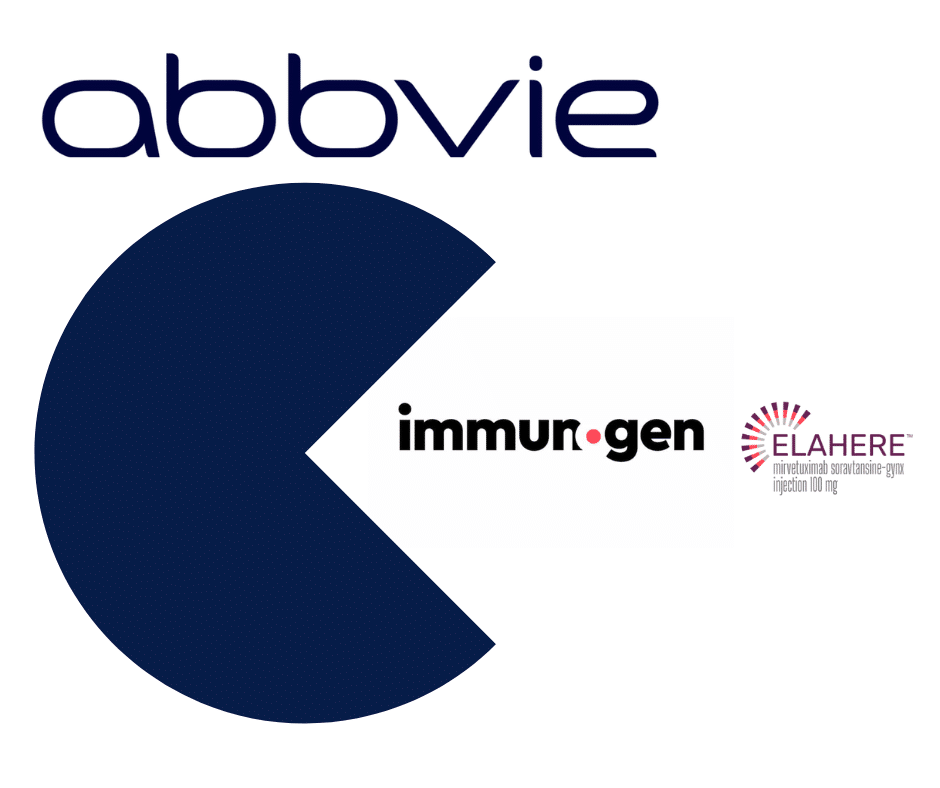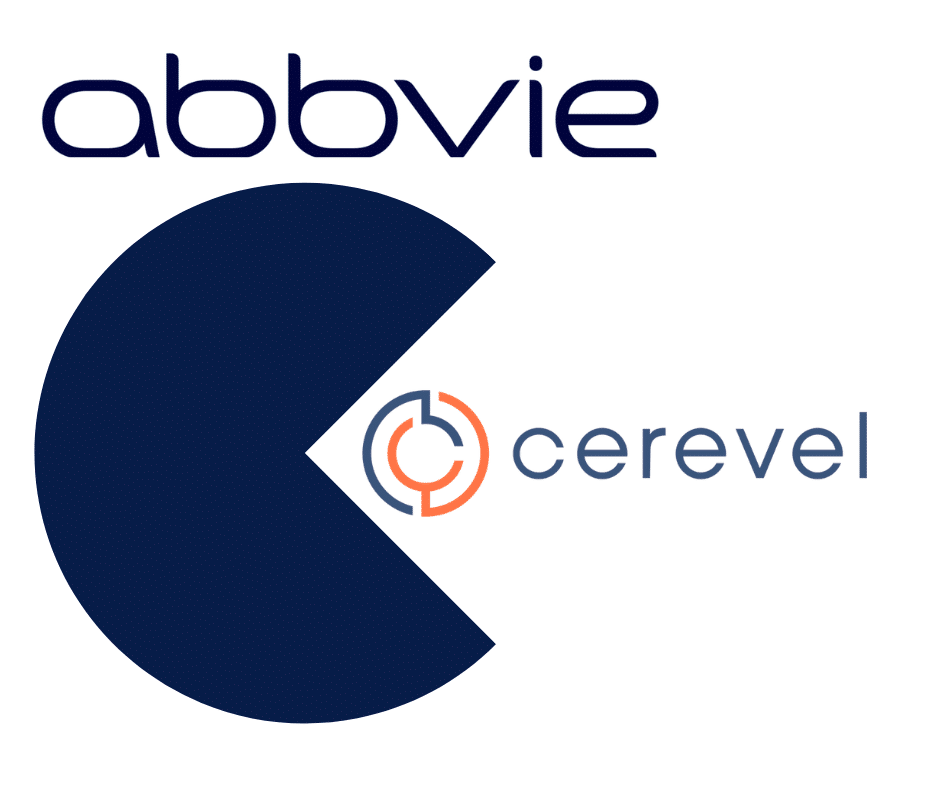AbbVie has agreed to acquire cancer biotech ImmunoGen (IMGN) for $10.1 billion in an all cash offering for $31.26 per share. J.P Morgan and Morgan Stanley served as buy-side advisors to AbbVie while Goldman Sachs and Lazard partnered with ImmunoGen on the sell-side. The offering represents a 93.7% premium over ImmunoGen’s one week prior share price.
ImmunoGen represents AbbVie’s latest effort to diversify away from Humira. As a key historical driver of growth for the company, Humira represents 40% of AbbVie’s total sales. However, recent loss of exclusivity pressures have swayed AbbVie towards supporting its pipeline through acquisition. In May of 2020, AbbVie acquired Allergan for $63 billion to “to diversity and expand [its] revenue base.”
Along the same line, according to AbbVie’s press release, “ImmunoGen’s follow-on pipeline complements AbbVie’s oncology portfolio, which has the potential to be transformative across multiple solid tumors and hematologic malignancies.”
Today’s blog will analyze the overall strategic fit of ImmunoGen with Abbvie, companies that Snowfish, LLC has both worked with over the years.
ADC’s
At a high level, ADC’s (Antibody-drug conjugates) are designed to selectively target tumor cells while reducing the impact on healthy cells. They combine an antibody, a linker, and an active cytotoxin designed to destroy the cell once inside.
Tumor cells produce antigens (molecules that the immune system can recognize) that designate the cells as potentially harmful. The antibody part of the ADC binds it to the cancerous cells where the cancerous cells then absorb the ADC, which allows the cytotoxin component to destroy the cancerous cells from within.
ADC’s and their development have generated considerable M&A activity in recent months, with Pfizer acquiring Seagen for $43 billion and Merk partnering with Daiichi Sankyo to jointly develop three ADCs.
In these market conditions, AbbVie’s move to acquire ImmunoGen wholesale instead of just ImmunoGen’s flagship product signals its bullishness on ADC’s as a therapy class. According to the NIH, there are “twelve and eight ADCs approved by the US and EU regulatory bodies.”
In addition to Elahere, ImmunoGen’s pipeline sports Pivekimab Sunirine to treat hematologic malignancies (Phase 2) and two other ADC’s to target other solid tumors.
Strategic Fit
Ostensibly, AbbVie’s move to acquire ImmunoGen appears to be a pure diversification play for its pipeline. According to the FDA, Elahere “is the first approval of a targeted therapy for FRα-positive, platinum-resistant ovarian cancer and the first antibody-drug conjugate approved for ovarian cancer.”
Here, Elahere’s accelerated approval grants ImmunoGen and now AbbVie a significant first-mover advantage in this space. As a result, ImmunoGen’s 10-Q asserts that Elahere accounted for 93% of revenues for the three months ended September 30th, 2023.
For Abbvie, ADC’s are a promising field and the firm has invested some of its own R&D. AbbVie currently has two ADC treatments in clinical development targeting indications in colorectal cancer, solid tumors, and non-small cell lung cancer.
Through the acquisition, AbbVie can leverage ImmunoGen’s successful ADC technology to bring some of its products to fruition. In fact, ImmunoGen has licensed this technology to Vertex “to research and evaluate ADC’s directed to specific targets.” Moreover, providers use companion diagnostics in conjunction with ADCs to better administer the treatment.
ImmunoGen, according to the NIH, is one of three of the twelve FDA-approved ADC’s to “have a formal requirement in their licensing for an antigen test.” ImmunoGen’s history of developing a successful antigen test will assist AbbVie with developing its own antigen test for its pipeline ADC treatments.
Conclusion
Overall, despite following Pfizer’s lead, AbbVie is making a highly strategic move in the ADC space. With Elahere under its control, AbbVie seeks to become the name in the ADC space, like a Novo Nordisk when it comes to weight-loss management.
- Deal in Review: AbbVie Acquires Cerevel - March 20, 2024
- Deal in Review: AbbVie Acquires ImmunoGen - December 7, 2023
- The Competitive Landscape for Weight Loss Treatments - August 25, 2023



